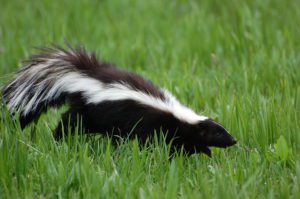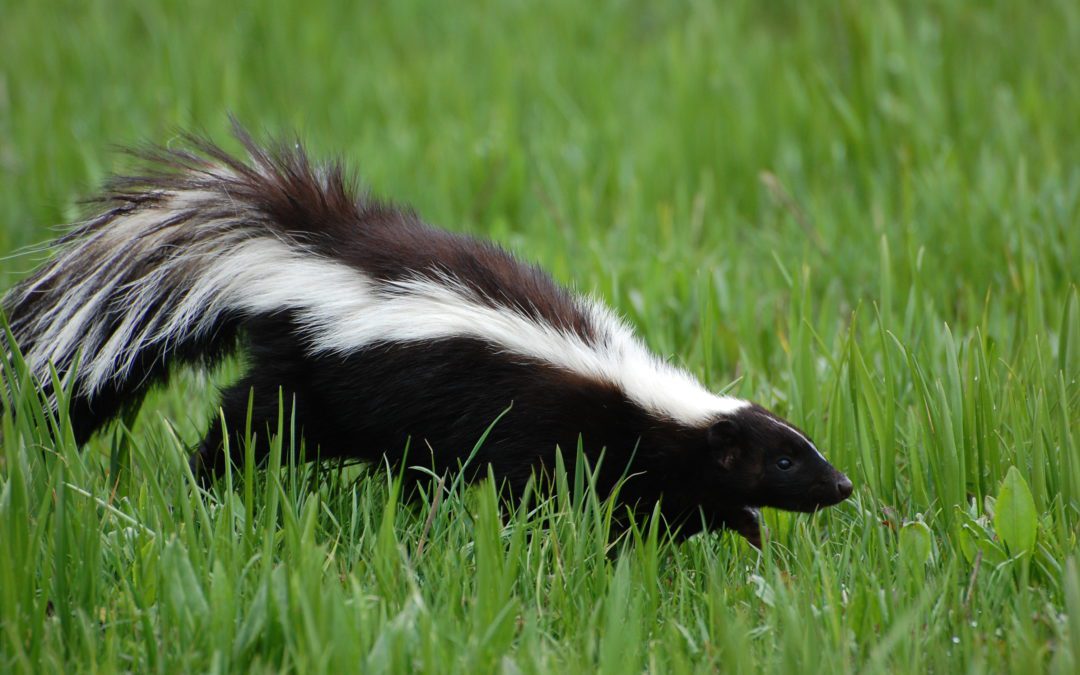
Skunks are largely inactive during the winter, so the need for skunk control isn’t as great. While they don’t go into full hibernation, they do enter into a state of extreme reduced activity, often going without food or water for several days at a time. This means that when spring comes around, skunks are out there eating as much as they can to bulk up after being dormant for so long.
February through March is the peak breeding season for skunks, which means April and May bring a huge increase in the number of skunks who are pregnant or who have just given birth and are looking to protect their young. New mothers are inclined to be more defensive than usual, leading to a greater likelihood that they’ll spray whatever or whomever they deem a threat. Add to that the population increase from all of the kits being born, and you have a recipe for a very stinky neighborhood.
The skunk population is growing, especially in suburbs. Skunks are incredibly adaptable, and cohabitating with humans offers them a wider variety of food and shelter options than living in the wild. Similar to our raccoon problem in Illinois, they eat our trash, tear up our yards looking for insect grubs, and dig their burrows underneath our homes. Skunks also have few natural predators. Carnivores like coyotes, wolves, and foxes – who we normally think of as being the top dogs of the Midwestern animal kingdom – are reluctant to go after skunks, because they don’t want to be sprayed. Really, a skunk’s biggest threat is being hit by a car. With an abundance of nourishment and no one hunting skunks for food, their numbers grow each year, and skunk control becomes an ever increasing problem.
It’s perfectly normal to notice an increase in skunk activity this time of year, but if you’re experiencing an abnormal amount of skunk smell on your property or suspect a skunk is denning under your deck, stoop, shed, or home, call ABC Wildlife immediately. While skunks are rarely aggressive, they are still the top carrier of rabies in Illinois. And in addition to spraying, they can also spread distemper or parasites to your pet. ABC Wildlife has an experienced team of animal control technicians that are trained in skunk control and ready to help you with your problem. They’ll even give you suggestions for keeping skunks off of your property and offer animal proofing solutions. Call one of our licensed wildlife experts today at (847) 870-7175.


